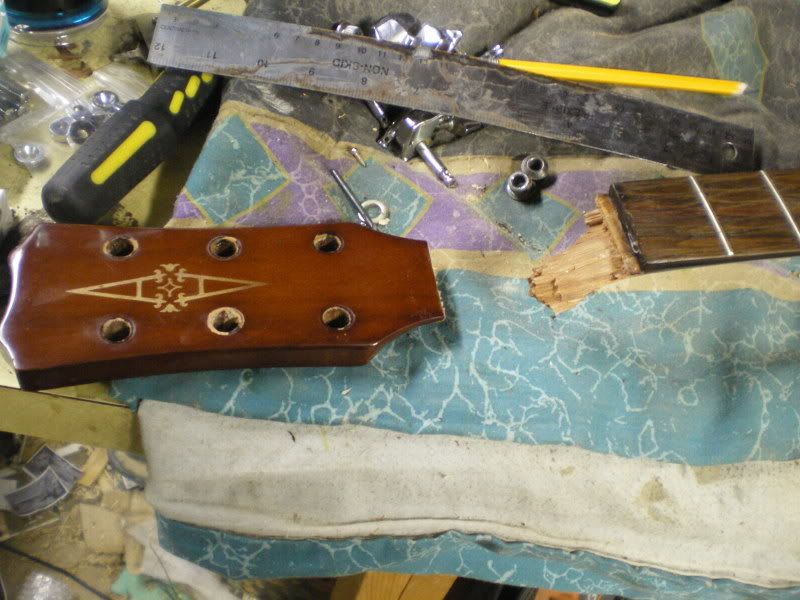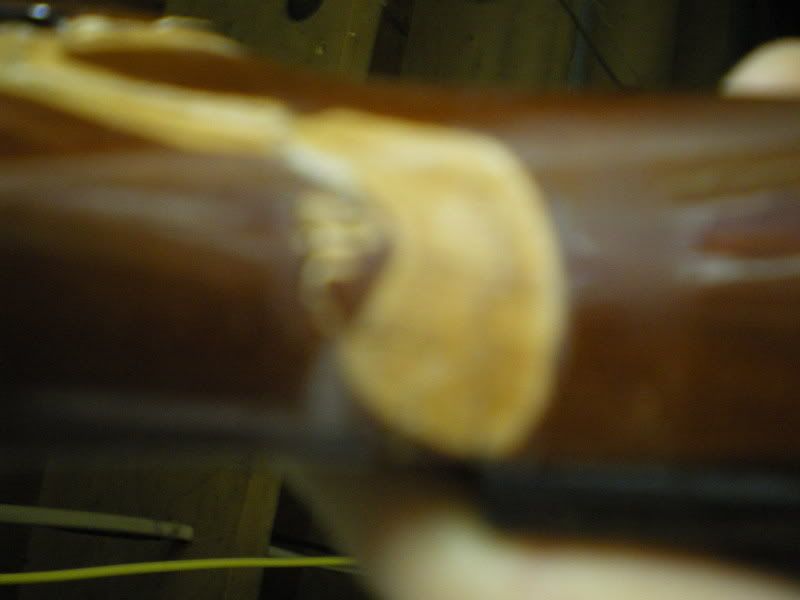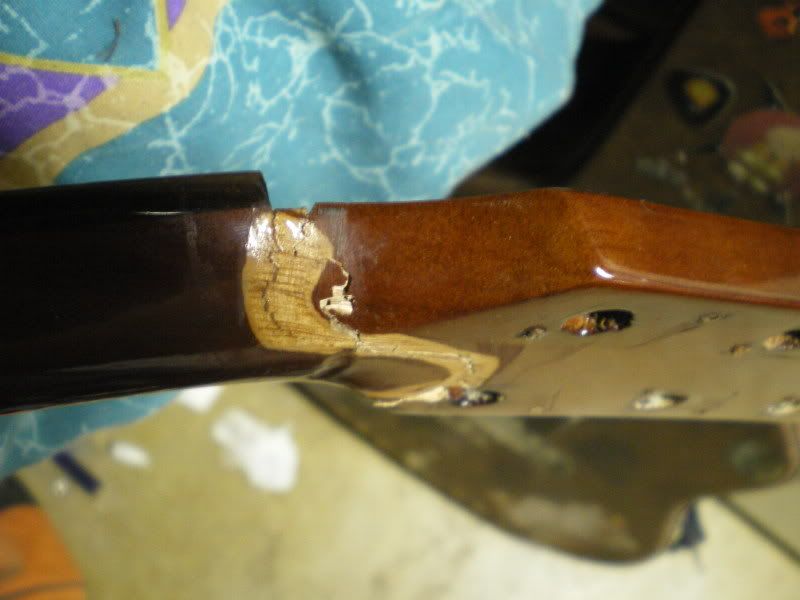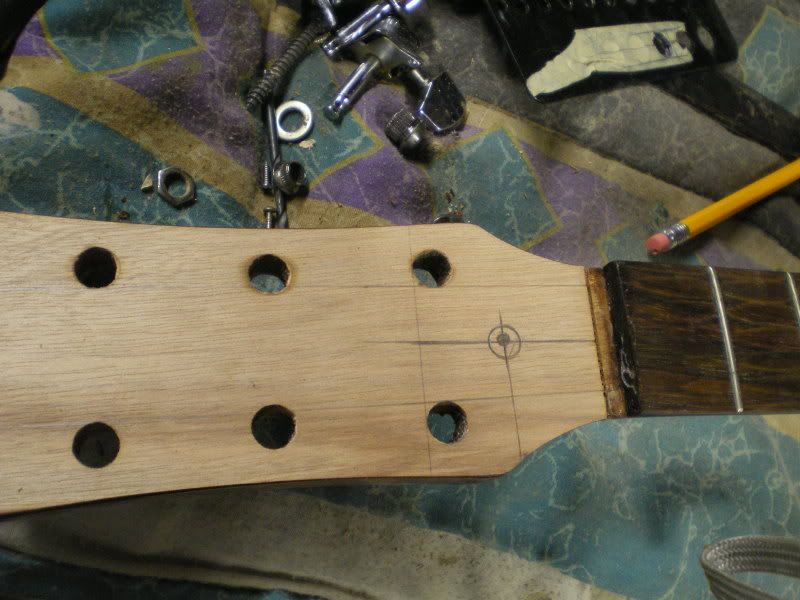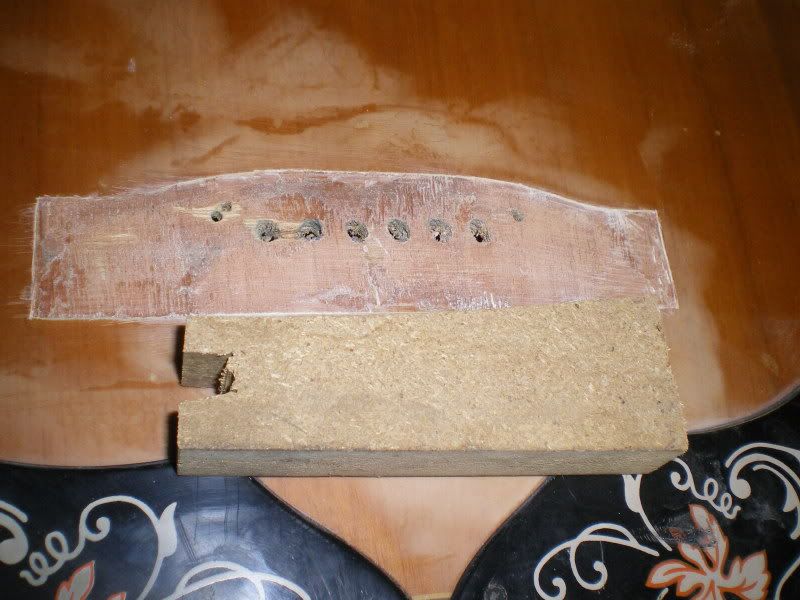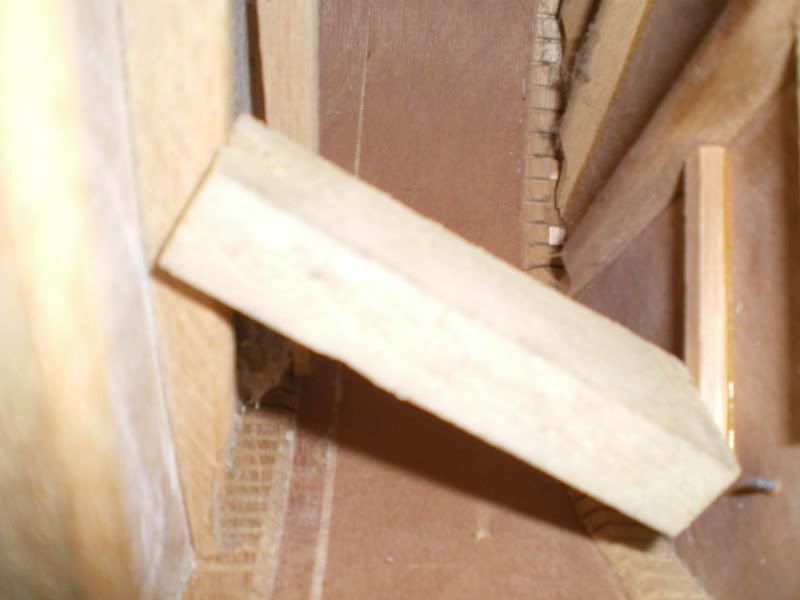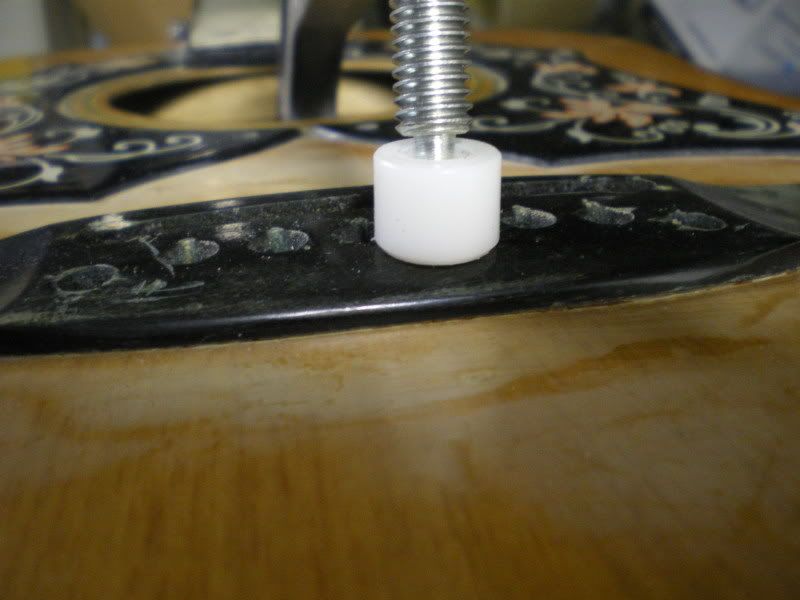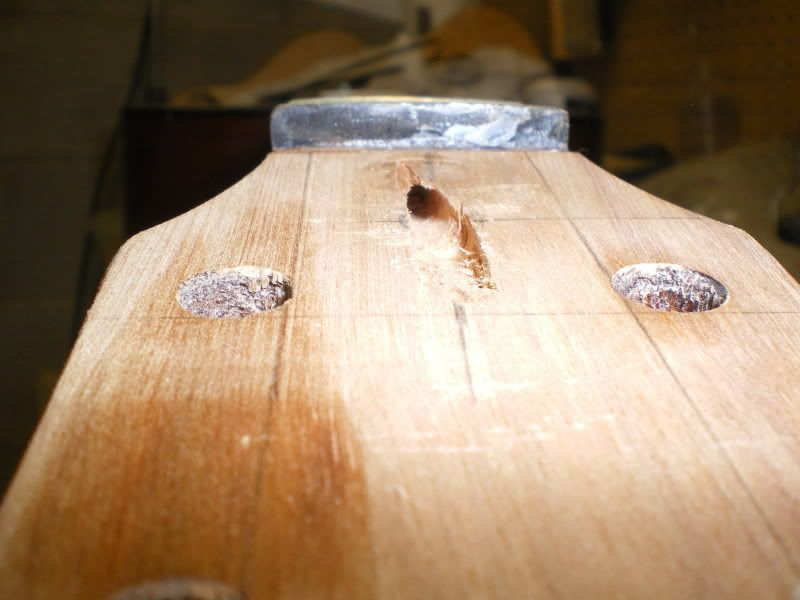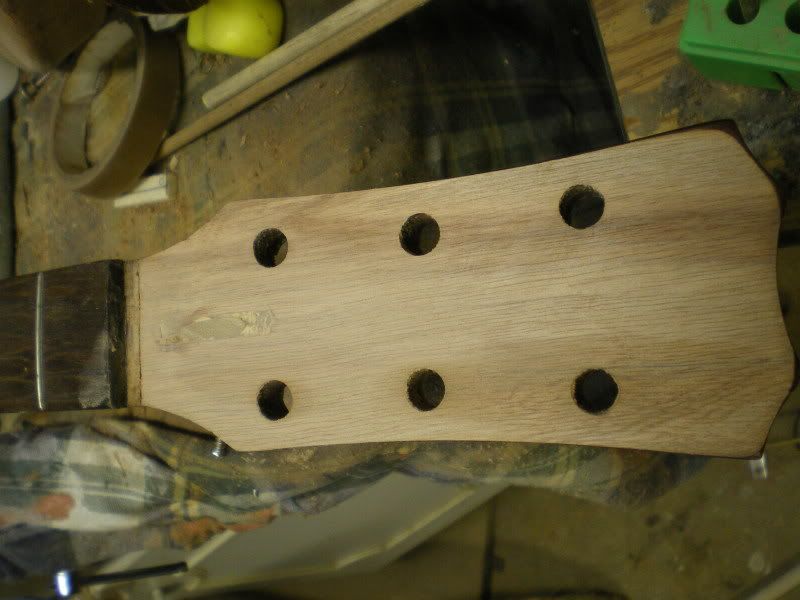i have done this before but it was before the site went ape shit and we lost everything.
so here it goes again.
this is a kay guitar that my buddy in milwaukee needs repaired, apparently it has some family history and means alot to them.
this is the bridge.
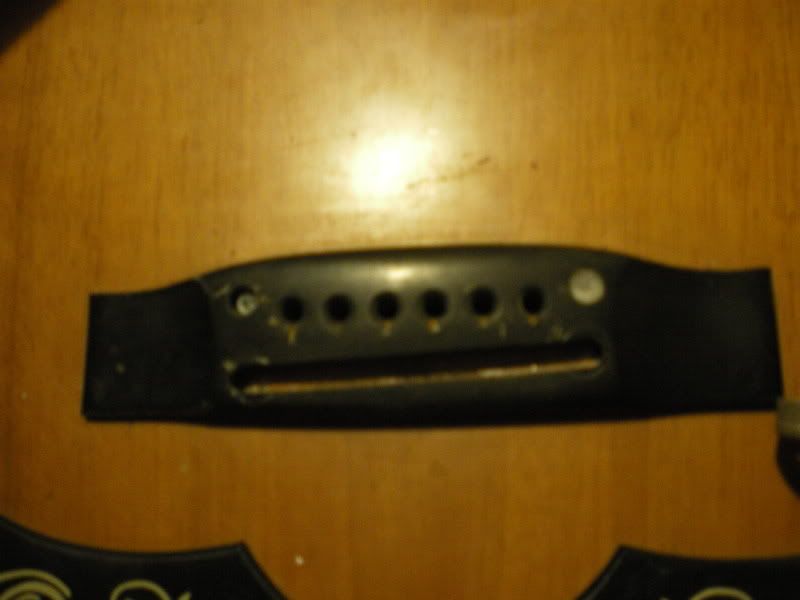
as you can tell it came stock with two screws to help hold it down(common practice) and the bridge saddle itself is an ajustable type.
this is the "lift" from the voice of the top(ITS A SOLID TOP!!!)
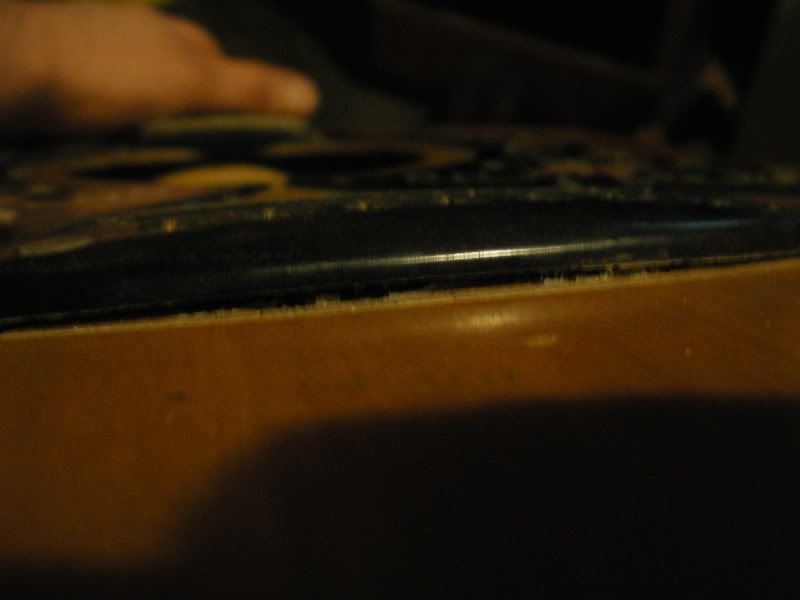
i first removed both of the screws by taking off the inlay fots and unscrewing them. then i got out my iron and with a wet towell i began to steam off the bridge.
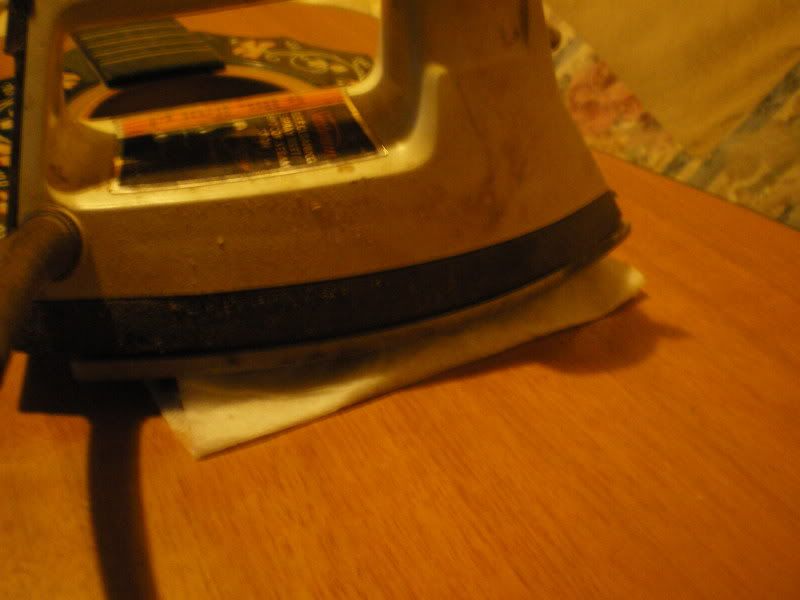
it only took about 5 minutes to get it off.
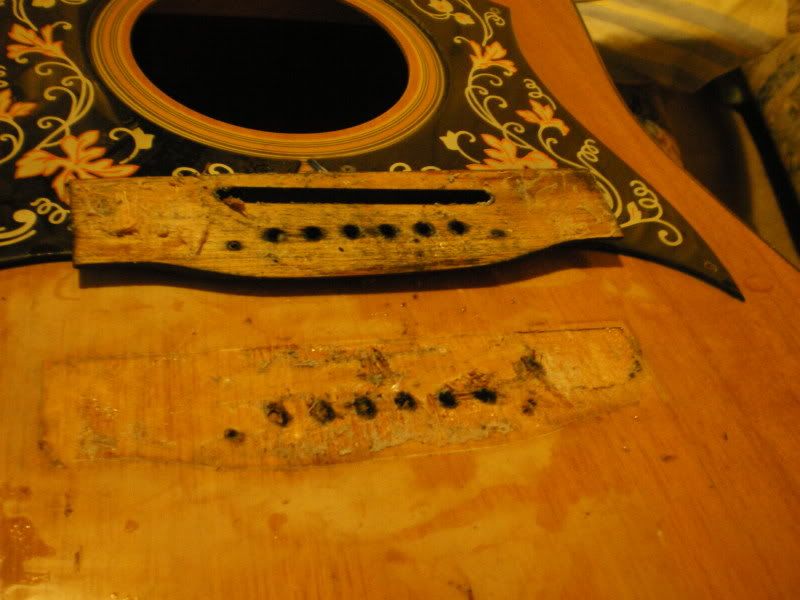
once its removed i clean up the glue area of the guitar and the bridge saddle itself.
and around this time i can accurately measure the lift of the top and what i will have to do for it.
this one lifted ALOT more than normal, a full 1/4 inch!
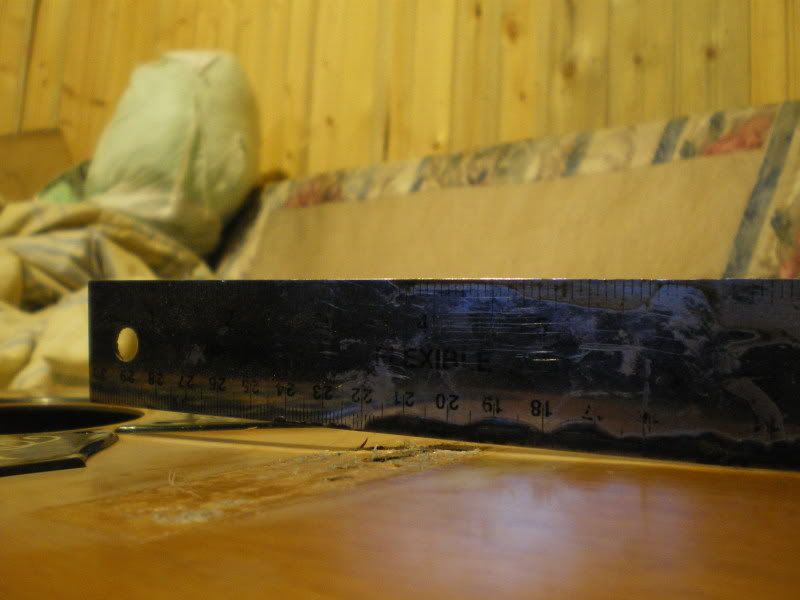
so my next step is to try and reverse about 40 years of warp by flatting the top with steam and pressure.
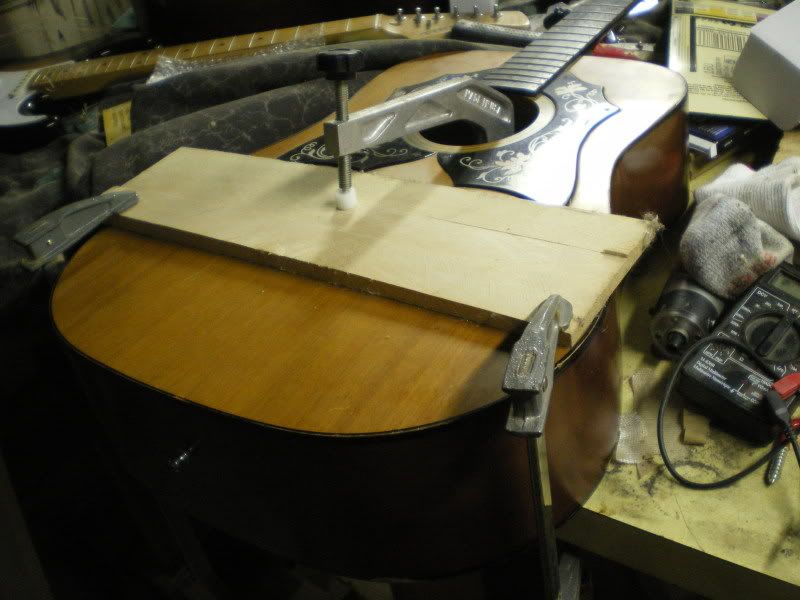
it was around this time that i started to check the bracing. the top bracing was great! but the bottom.... not so much. im going to have re-glue all the back bracing.
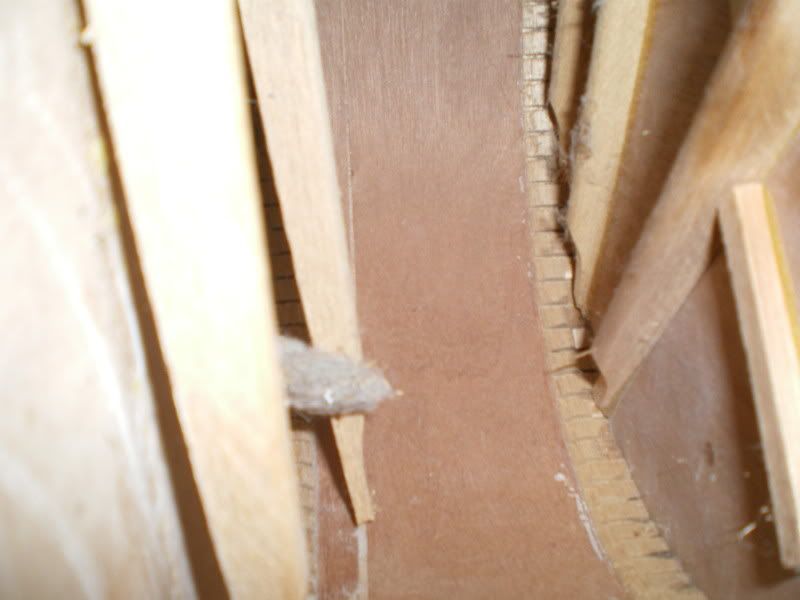
its still in this state, but tomorrow after work i should be able to start on the bits to re-glue the back bracing. i tried to explain to sloan how i did this but i think i lost him in the explanation, so i shall go into great detail tomorrow.




